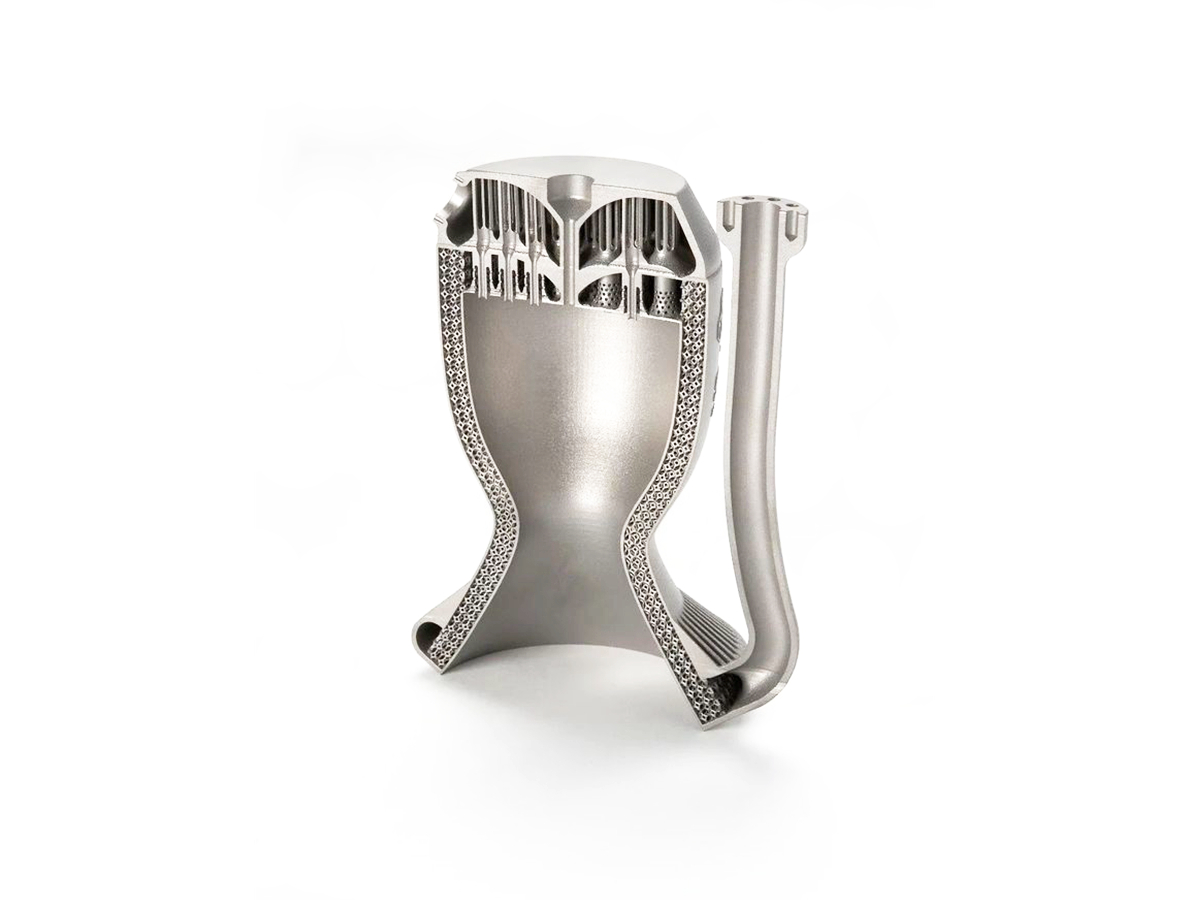Revolutionizing Consumer Electronics: Durable and Sleek Carbon Steel Casings for High-Tech Devices
Introduction
Carbon steel 3D printing is redefining the production of durable, sleek casings for next-generation high-tech devices. By leveraging advanced metal 3D printing technologies like Selective Laser Melting (SLM) and Direct Metal Laser Sintering (DMLS), premium carbon steels such as AISI 4140 and Tool Steel MS1 provide an excellent balance of mechanical strength, lightweight properties, and aesthetic surface quality.
Compared to traditional CNC machining or casting, carbon steel 3D printing for consumer electronics enables faster product iteration, more innovative geometric freedom, seamless integration of functional features, and enhanced structural durability for smart devices.
Applicable Material Matrix
Material | Ultimate Tensile Strength (MPa) | Yield Strength (MPa) | Hardness (HRC) | Surface Finish Quality | Consumer Electronics Suitability |
|---|---|---|---|---|---|
950 | 655 | 28–32 | Very Good | Durable device casings | |
2000 | 1800 | 52–54 | Excellent | Premium rugged housings | |
2000 | 1850 | 52–54 | Excellent | Ultra-thin high-strength shells | |
1500 | 1300 | 45–52 | Good | Heat-resistant enclosures | |
950 | 655 | 28–32 | Good | Structural internal frames | |
800 | 500 | 20–28 | Good | Lightweight internal supports |
Material Selection Guide
AISI 4140: Offers tensile strength of 950 MPa combined with excellent machinability and toughness, making it suitable for robust smartphone frames, laptop housings, and wearable device exteriors.
Tool Steel MS1 (Maraging Steel): With tensile strength reaching 2000 MPa, MS1 is ideal for ruggedized device casings requiring maximum impact resistance and premium surface finish after post-processing.
Tool Steel 1.2709 (Maraging 300): Provides outstanding strength and dimensional stability, allowing the production of ultra-thin, high-durability shells for luxury consumer electronics.
Tool Steel H13: Its superior thermal resistance and mechanical strength make it an excellent choice for casings subjected to elevated operational temperatures, such as industrial tablets and rugged computing devices.
AISI 4130: A high-strength, lightweight steel ideal for secondary structural frames, brackets, and supports inside high-tech electronic assemblies.
20MnCr5: A case-hardening alloy used for internal lightweight structures and mechanical assemblies in consumer electronics, balancing wear resistance with economical production.
Process Performance Matrix
Attribute | Carbon Steel 3D Printing Performance |
|---|---|
Dimensional Accuracy | ±0.05 mm |
Density | >99.5% Theoretical Density |
Layer Thickness | 30–60 μm |
Surface Roughness (As-Printed) | Ra 5–10 μm |
Minimum Feature Size | 0.4–0.6 mm |
Process Selection Guide
Lightweight Design Integration: Carbon steel 3D printing supports topology-optimized enclosures and internal reinforcement, minimizing weight while maximizing impact resistance.
Superior Surface Finish: Steels like MS1 and 1.2709 allow smooth surfaces after electropolishing, providing a premium aesthetic feel for high-end consumer products.
Exceptional Mechanical Strength: Ensures device casings can survive drop tests, torsional stresses, and mechanical abuse often faced by consumer electronics.
Rapid Prototyping and Small-Batch Production: Supports faster design iteration and market validation, which is crucial for startups and innovative tech companies.
Case In-Depth Analysis: MS1 3D Printed Ruggedized Tablet Casing for Industrial Use
A technology company required a lightweight yet impact-resistant tablet casing for field technicians. Using our carbon steel 3D printing service with Tool Steel MS1, we produced ruggedized casings achieving tensile strength above 1950 MPa and density over 99.5%. Advanced lattice-reinforced designs reduced weight by 20% compared to conventional cast aluminum casings, while withstanding drop tests from 2 meters onto concrete without deformation. Post-processing included HIP treatment and CNC machining for interface precision and final surface smoothing.
Industry Applications
Consumer Electronics
Rugged smartphone frames, tablet casings, and laptop shells.
High-strength enclosures for wearable technology and smart devices.
Industrial Computing
Ruggedized casings for field tablets, mobile diagnostic tools, and industrial control panels.
Luxury and Lifestyle Electronics
Premium lightweight casings for smartwatches, fitness trackers, and luxury mobile devices.
Mainstream 3D Printing Technology Types for Carbon Steel Consumer Electronics Parts
Selective Laser Melting (SLM): Best for dense, high-strength consumer device casings requiring fine detailing.
Direct Metal Laser Sintering (DMLS): Ideal for producing lightweight, complex electronic housings.
Binder Jetting: Effective for cost-efficient small-batch production of carbon steel device frames.
FAQs
What carbon steel grades are most suitable for 3D printed consumer electronics casings?
How does carbon steel 3D printing improve device durability and surface quality?
What post-processing methods are used to achieve premium finishes on carbon steel casings?
How does carbon steel 3D printing enable faster product iteration for electronics companies?
Can 3D printed carbon steel housings meet high-tech device drop, shock, and wear resistance requirements?

